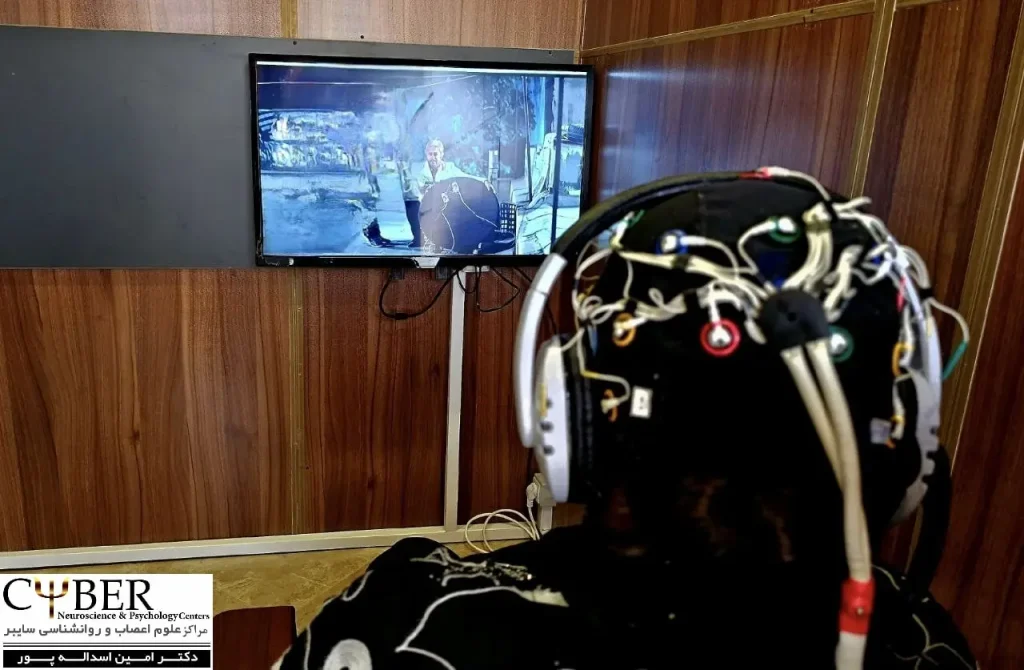Understanding Anxiety: Causes, Symptoms, and Treatment
Anxiety is a common emotional state that affects many individuals in varying degrees. While it is normal to feel anxious in certain situations, such as before a job interview or public speaking, persistent and excessive anxiety can interfere with one’s daily life and well-being. The good news is that today it is possible to treat anxiety with new methods. The causes of anxiety can be varied and complex, leading to a range of symptoms of anxiety such as excessive worrying, restlessness, and panic attacks.
In this article, we will explore the causes and symptoms of anxiety, as well as effective coping strategies to manage this challenging emotional state.
Causes of Anxiety
This disorder can be caused by a combination of genetic, environmental, and lifestyle factors. Some of the common causes of anxiety include:
Genetics
this disorder can be influenced by genetic factors, meaning that it can run in families. Research has shown that individuals with a family history of this disorder may be more likely to develop This disorder themselves. This is because certain genes can affect the way the brain processes information, leading to an increased risk of developing anxiety.
Environment
Environmental factors can also contribute to This disorder. Traumatic events, such as abuse or neglect, can increase the risk of developing anxiety later in life. Additionally, stressful life events, such as financial difficulties or relationship problems, can trigger anxiety symptoms in some individuals.
Brain Chemistry
Chemical imbalances in the brain can also contribute to This disorder. Neurotransmitters, which are chemicals that transmit messages between neurons in the brain, can affect mood and anxiety levels. For example, low levels of serotonin, a neurotransmitter that regulates mood, have been linked to this disorder.
Personality
Certain personality traits can also contribute to the development of This disorder. Individuals who are naturally more sensitive or prone to worry may be more likely to develop anxiety disorders. Additionally, individuals who have a tendency to avoid or withdraw from stressful situations may be more susceptible to This disorder.
Medical Conditions
Medical conditions, such as thyroid disorders or heart disease, can also contribute to the development of This disorder. This is because these conditions can affect the body’s stress response, leading to increased anxiety levels.
Symptoms of Anxiety
The symptoms of this disorder can vary from person to person, but some common signs and symptoms include:
Physical Symptoms
Anxiety can cause a range of physical symptoms, including:
- Rapid heartbeat or palpitations
- Sweating or trembling
- Shortness of breath or difficulty breathing
- Nausea or stomach upset
- Muscle tension or aches
- Fatigue or weakness
Emotional Symptoms
this disorder can also cause a range of emotional symptoms, including:
- Excessive worry or fear
- Restlessness or irritability
- Difficulty concentrating or thinking clearly
- Feeling on edge or easily startled
- Avoidance of certain situations or activities
- Difficulty falling or staying asleep
Behavioral Symptoms
Anxiety can also impact an individual’s behavior, causing them to engage in certain behaviors to manage their symptoms, such as:
- Avoidance of certain situations or activities
- Seeking reassurance from others
- Engaging in compulsive behaviors, such as checking or counting
- Using drugs or alcohol to manage This disorder symptoms
- Withdrawing from social situations
treatments for anxiety
In this article, we will explore some of the most effective treatments for anxiety and how they work:
Loreta Neurofeedback
LORETA neurofeedback is a non-invasive technique that uses real-time brain imaging to train individuals to regulate their brain activity. This technique has been found to be effective in treatment of anxiety, depression, and other mental health conditions.
Loreta is the best treatment of Anxiety, In the rest of the article, we talk more about this treatment method and its advantages compared to other methods.
Cognitive Behavioral Therapy (CBT)
Cognitive Behavioral Therapy, or CBT, is a type of talk therapy that is often used to treat anxiety. CBT helps individuals identify and challenge negative thought patterns that can contribute to this disorder. Through CBT, individuals learn new coping strategies and behaviors to manage their This disorder symptoms.
Medications
Antidepressants and anti-anxiety medications can also be effective in treating this disorder. These medications work by altering the levels of neurotransmitters in the brain, such as serotonin and norepinephrine, which can help regulate mood and anxiety levels. It’s important to note that medications should always be prescribed and monitored by a healthcare professional. At The Cyber ( NEUROSCIENCE AND PSYCHOLOGY CENTERS ), We do not recommend the use of any pills or drugs to treat anxiety.
Mindfulness and Relaxation Techniques
Mindfulness and relaxation techniques, such as deep breathing exercises, yoga, and meditation, can also be helpful in managing This disorder symptoms. These techniques can help individuals learn to calm their minds and bodies and reduce feelings of stress.
Lifestyle Changes
Making lifestyle changes, such as reducing caffeine intake, exercising regularly, and getting enough sleep, can also be effective in managing this disorder symptoms. These changes can help individuals reduce stress levels and improve their overall well-being.
How LORETA Neurofeedback Can Help Treat Anxiety
This disorder is one of the most common mental health conditions, affecting millions of people worldwide. While therapy and medication can be effective treatments, there is growing interest in alternative therapies that can address the root causes of this disorder. One such therapy is LORETA neurofeedback, a non-invasive, drug-free treatment that has been shown to have promising results in reducing anxiety symptoms.
What is LORETA Neurofeedback?
LORETA (Low-Resolution Electromagnetic Tomography) neurofeedback is a form of neurofeedback that uses EEG (electroencephalography) technology to monitor and train brain activity. It works by placing sensors on the scalp to detect brain waves and using this information to create a three-dimensional image of the brain. The image is then used to identify areas of the brain that are overactive or underactive, which can contribute to anxiety symptoms.
How Does LORETA Neurofeedback Treat Anxiety?
LORETA neurofeedback aims to regulate brain activity by training the brain to produce specific types of brain waves. During a neurofeedback session, a patient sits in a comfortable chair with sensors placed on their scalp. The sensors detect brain waves and provide feedback in real-time through visual or auditory cues, such as a video or sound. The feedback helps the patient learn to regulate their brain activity, which can improve their mood, reduce anxiety, and increase focus and concentration.
Research on LORETA Neurofeedback for Anxiety
Several studies have shown promising results in using LORETA neurofeedback to treat this disorder. In a 2017 study published in the Journal of Clinical Psychology, researchers found that LORETA neurofeedback significantly reduced symptoms of This disorder in patients with generalized anxiety disorder. Another study published in the Journal of Neurotherapy found that LORETA neurofeedback was effective in reducing symptoms of This disorder in patients with social anxiety disorder.
Benefits of LORETA Neurofeedback
One of the main benefits of LORETA neurofeedback is that it is a non-invasive, drug-free treatment that does not have the side effects of medication. Additionally, it is a personalized treatment that targets the specific areas of the brain that contribute to anxiety, which can be more effective than a one-size-fits-all approach. LORETA neurofeedback has also been shown to have long-lasting effects, with many patients experiencing improvements in their anxiety symptoms even after treatment has ended.
Complications of anxiety
this disorder can be triggered by a variety of factors, such as stress, trauma, or genetics. While This disorder can be manageable, it can also lead to complications that can significantly impact an individual’s quality of life. we will discuss some of the complications of anxiety:
Depression
this disorder and depression often co-occur, and anxiety can lead to depression. this disorder can lead to feelings of hopelessness and helplessness, which can cause depression to develop. Individuals with anxiety are at a higher risk of developing major depressive disorder.
Substance Abuse
this disorder can lead to substance abuse as a coping mechanism. People with this disorder may turn to drugs or alcohol to manage their symptoms. Unfortunately, substance abuse can worsen symptoms, leading to a vicious cycle.
Failure to treat anxiety and physical health problems
this disorder can lead to physical health problems, such as digestive issues, headaches, and insomnia. Chronic anxiety can also lead to high blood pressure, heart disease, and stroke.
Social Isolation
Individuals with This disorder may avoid social situations, leading to social isolation. This isolation can exacerbate This disorder symptoms and lead to depression.
Treating anxiety reduces problems in relationships
this disorder can also cause problems in relationships. Individuals with this disorder may struggle with trust issues, which can lead to relationship problems.
Academic or Work Problems
This disorder can also lead to academic or work problems. Individuals with anxiety may struggle with concentration and productivity, leading to poor academic or work performance.
this disorder can have several complications that can impact an individual’s quality of life. If you or someone you know is struggling with this disorder, it’s essential to seek help from a mental health professional. Early intervention can prevent complications and improve overall well-being.
Conclusion
This disorder can be a challenging emotional state to manage, but there are many effective coping strategies that can help. By understanding the causes and symptoms of anxiety and utilizing effective coping techniques, individuals can reduce the impact of This disorder on their daily lives and improve overall well-being.
LORETA neurofeedback is a promising treatment for anxiety that can help regulate brain activity and reduce symptoms of this disorder. While more research is needed to fully understand the benefits of this therapy, it has already shown promising results and is a safe and effective alternative to medication for many patients. If you are struggling with anxiety, LORETA neurofeedback is the best treatment option.
For more information, follow our page on Twitter at the following address:




